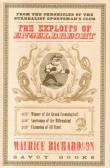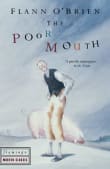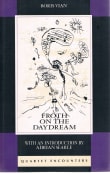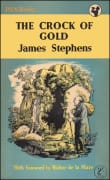Easily one of the best short-story collections I have ever read. Maybe even the best.
This doesn't mean that all the stories in the book are equally entertaining, but it does mean that the best stories are so good they impart a terrific momentum to the collection as a whole, carrying it forward beyond all negative criticism, at least in my view.
I bought the edition I own, a pleasingly designed paperback published by Anchor Books, in the early 1990s. Barth is a writer I regard as almost impossibly talented, and yet considerable effort is required from the reader to fully appreciate his works. This means that despite the author's genius he is never going to be truly popular. Criticially successful, yes, and perhaps even raised to the level of major cultural icon, but widely read? Maybe in the nineteen-sixties, but not now.
Patience, stamina and focus are needed and those can often be in short supply in the modern reading world. I understand this.
The collection consists of fourteen stories of varying length. The first, 'Frame-Tale', is simultaneously the shortest (or one of the shortest) and the longest story ever written, but this is a trick. The story is constructed in the shape of a Möbius strip. It's a gimmick but one I happen to like." Once upon a time there was a story that began: Once upon a time there was a story that began..." and so on to infinity.
The second story, 'Night-Sea Journey', is, to my mind, one of the greatest philosophical short stories ever written. It is about existence, identity, chance, destiny and implausibility. It is existentially terrifying, a sort of horror story, and yet utterly realistic. It is about where we all come from and the extreme unlikelihood of us ever coming from anywhere at all.
Three stories in the collection, 'Ambrose His Mark'. 'Water-Message' and 'Lost in the Funhouse' are directly connected and form a suite about a family of mild eccentrics. The wonder and strangeness of childhood is explored in these linked pieces, fairly conventionally at first but with an increasing reliance on metafiction. These tricks are not shallow, done for their own sake or merely to show off the author's cleverness. They genuinely add to the poignancy of the narratives, in a way that I can't quite identify. They take the stories outside themselves, join them to our own lives on some enigmatic level.
And the prose is exquisite.
'Petition' is an extremely grim (but stoical) tale that is beautiful, bitter, desperate, resigned, horrid and magnificent all at once. It is more disturbing than anything written by Kafka, Beckett, Ligotti or any of those other specialists in psychological, spiritual and existential unease, and it also has the sadness to be found in those writers' most acute and sombre visions. Not only sadness but an offbeat, hideous humour too, a product of the stoicism of the doomed narrator.
'Autobiography' is a story that tells itself. It's not the autobiography of an author but of the words that appear as the story is being told. It is therefore utterly contemporary with itself, perhaps the only fiction written in the permanent present tense.
'Echo' is a story about Narcissus and Tiresias, but with an unexpected outcome that turns out to be the logical consequence of both characters' peculiar aspects.
There are some lesser experimental pieces here too, still intriguing if not as satisfying, namely 'Two Meditations', 'Title', 'Glossolalia' and 'Life-Story'. The final two pieces in the book are novelettes or perhaps novellas. They are both magnificent. I am still in awe of their brilliance. 'Menelaiad' is absolutely one of the most difficult pieces of fiction I have read, and one of the best, though it takes a lot of focus from the reader not to lose the thread of what's going on. I am amazed that anyone could construct such a structurally complex story and make it not only coherent but ingeniously amusing. I am still not entirely sure I understood every allusion and twist, every revelation of this multi-layered compressed epic.
'Anonymiad' is a masterpiece about the art of storytelling itself, worked out in the form of a castaway story, with prose that is muscular and cerebral but deeply poetic and never fussy, always to the point despite the complexity of the metaphors and phrasings. It is a perfect work, by which I mean I simply can't see how it could ever be improved by changing even a single word.
I have read thousands of books in my lifetime so far, probably tens of thousands of short stories.
This book is one that I will always congratulate myself on having the good sense to read.













